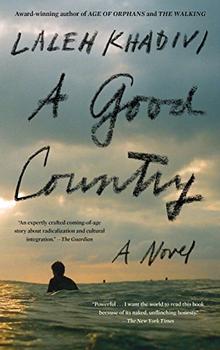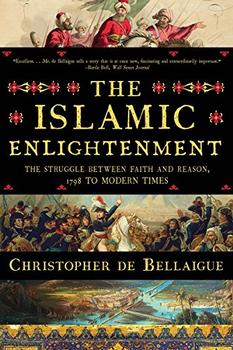Summary | Excerpt | Reading Guide | Reviews | Beyond the book | Read-Alikes | Genres & Themes | Author Bio

The lives of modern-day Muslims living in Britain and a historical Muslim leader are intertwined in Leila Aboulela's beautifully written novel about identity and belonging.
In The Kindness of Enemies, the central character Natalie, has spent her formative years living in Sudan with her Russian mother and Sudanese father. When she was still a girl however, her parents divorced and Natalie and her mother moved to Scotland. When the novel opens, Natalie is a single woman in her thirties, a successful academic at Aberdeen University, specializing in Russian Imperialism and jihad as a form of resistance in the Caucasus region in the nineteenth century. As part of that research, Natalie visits the home of one her students, Oz, to see a sword belonging to his ancestor, Imam Shamil, leader of the Muslim resistance in the Caucasus. Unfortunately, Oz is arrested on suspicion of terrorist activities forcing Natalie to re-evaluate her life, her heritage and her faith.
The historical thread of the novel, based on actual fact, both mirrors and amplifies the struggles and experiences of Natalie, Oz and his mother Malak. Aboulela recreates the Caucasus mountain region of the mid-nineteenth century to great effect. Situated between the Black and Caspian Seas, the area currently forms part of the three nation states of Georgia, Armenia and Azerbaijan, but in the period evoked in The Kindness of Enemies, the Caucasus mountain tribes were engaged in fierce resistance against Russian rule.
In 1839, Imam Shamil's forces were besieged for eighty days and Shamil was forced to hand over his eight-year old son, Jamaleldin as a Russian hostage to break the deadlock and avoid starvation. The boy was taken to St. Petersburg and brought up at the court of Tzar Nicholas I. Fifteen years later, Shamil, determined to rescue his son, kidnapped Anna Elinichna, a Georgian Princess, and her son, holding them prisoner in the seraglio of his wives and demanding Jamaleldin's return.
The two stories, set in different time periods, are deftly united by theme and Aboulela creates fascinating connections between the characters across the centuries. Natalie's separation from her father in Sudan parallels the experience of Jamaleldin in Russia. Both spent their early years as Muslims but have moved elsewhere and their religious grounding has grown weaker as a result. The importance of faith and in particular the need for active spiritual guidance is also emphasized. Just as Shamil needs his mentor, Sheikh Jamal el-din, so does Natalie, who finds a possible guide in Oz's mother, Malak. In both stories there are lost sibling relationships, imprisonments and suggestions of illicit attraction – in the modern story between Natalie and her young student Oz; in the historical story between Imam Shamil and his prisoner, the married Princess Anna.
Aboulela adeptly evokes the nineteenth century and creates engrossing and complex characters. The convoluted historical background of the war in Crimea and rebellion in the Caucasus is made accessible within a dramatic storyline.
The concept of jihad has become synonymous with terrorism (see 'Beyond the Book'), but when Imam Shamil, an honorable, even noble, character uses the term, he is describing the defense of his homeland, not aggression or acts of terror. In the contemporary storyline, Oz is arrested and his university career derailed, it appears, solely because of online research he conducts for a course. And although Natalie wants nothing more than to feel at home somewhere, it is clear in Aboulela's novel, that for a young, intelligent Muslim woman in the UK, feeling that she belongs is not as easy as it ought to be.
At a time of international concern over terrorism and fears of jihad against non-Muslim nations, these threads that The Kindness of Enemies unearths, make it a deeply humane, refreshing and insightful read.
![]() This review was originally published in The BookBrowse Review in February 2016, and has been updated for the
January 2017 edition.
Click here to go to this issue.
This review was originally published in The BookBrowse Review in February 2016, and has been updated for the
January 2017 edition.
Click here to go to this issue.

If you liked The Kindness of Enemies, try these:

by Laleh Khadivi
Published 2018
A timely novel about the radicalization of a Muslim teen in California - about where identity truly lies, and how we find it.

by Christopher de Bellaigue
Published 2018
A revelatory and game-changing narrative that rewrites everything we thought we knew about the modern history of the Islamic world.
Your guide toexceptional books
BookBrowse seeks out and recommends the best in contemporary fiction and nonfiction—books that not only engage and entertain but also deepen our understanding of ourselves and the world around us.